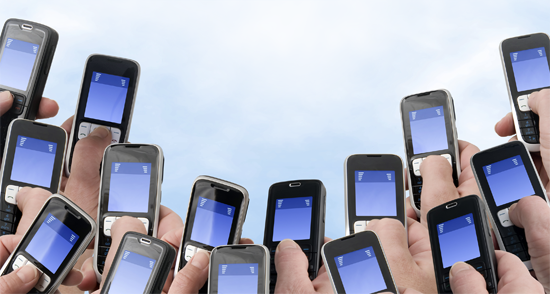
It's time for a tech fast...
Reject Infobesity
by Chuck Colson
Recently, I was at a dinner having a fascinating conversation with some very influential people, but one of the dinner guests had his head down the whole time. I thought he was falling asleep. He’s almost my age, and sometimes that happens! But, lo and behold, after dinner I discovered he had actually been reading his Blackberry™.
Now, I’m not wagging a finger at him, because I have been guilty of overindulging in technology myself. I like to call it multitasking, but my wife Patty has another name for it. Recently, we were able to get away from our normally hectic lives to celebrate her birthday for a few days. Do you know what she wanted for her present? A promise that I would put my iPhone away for the whole time.
Susan Maushart, author of the new book, The Winter of Our Disconnect, describes this kind of addiction to media with the marvelous term infobesity. Just as Americans have a growing reputation—if you’ll pardon the pun—for physical obesity, we also have an expanding commitment to staying connected through social media such as Facebook and devices such as smart phones.
Just as too much good food can be unhealthy for us, so also can too much social and electronic networking. And I mean that literally! In January, security cameras in Reading, Pennsylvania, recorded a shopper who was so busy texting while walking through a mall that she didn’t see a fountain in front of her and fell into a pool. The video went viral, and millions had a laugh at the poor woman’s expense.
Far less humorous is the fact that each day more than a million Americans send text messages or use their cell phones while driving. No wonder distracted driving fatalities are on the rise.
In her new book, Alone Together, MIT professor Sherry Turkle writes that technology—despite its many obvious benefits—also threatens to increase our isolation and make us less human. Experts say email, online games, social networking, and blogs are addicting in part because they are portable, provide instant gratification, and allow us an easy escape from relationships that may be difficult and require more work.
Sharon Gilchrest O’Neill, a marriage and family therapist in New York, suggests that “Technology should be on the list of the top reasons why people divorce—along with money, sex, and parenting.”
Of course, technology can also be a blessing. Many people rightly point out that Facebook, rather than forcing them into isolation, has helped them find old friends and neighbors. Droids, iPhones, and other technological marvels can be seen as expressions of God-given creative potential. Rather than dismissing them as evil, maybe we Christians should begin to think in terms of what’s prudent. How can we can use technology for God’s glory, rather than let it use us?
How do we know whether we are suffering from infobesity? Why not try a tech-fast for a day, or even a week. Don’t use your iPhone, don’t sign in to Facebook—whatever your tech weakness is—just withdraw for a while, and see what happens.
If that seems too radical or impossible to attempt, then I’m afraid you probably do have an advanced case of infobesity. And, please, watch out for those mall fountains.
About the Writer: Chuck Colson is founder of the non-profit organization Prison Fellowship, which works to provide spiritual and emotional support as well as minister to those in prison. He is host of the nationally syndicated radio broadcast, BreakPoint. He has authored numerous books and magazine articles.
From BreakPoint, February 15, 2011, reprinted with permission of Prison Fellowship, www.breakpoint.org.
|

